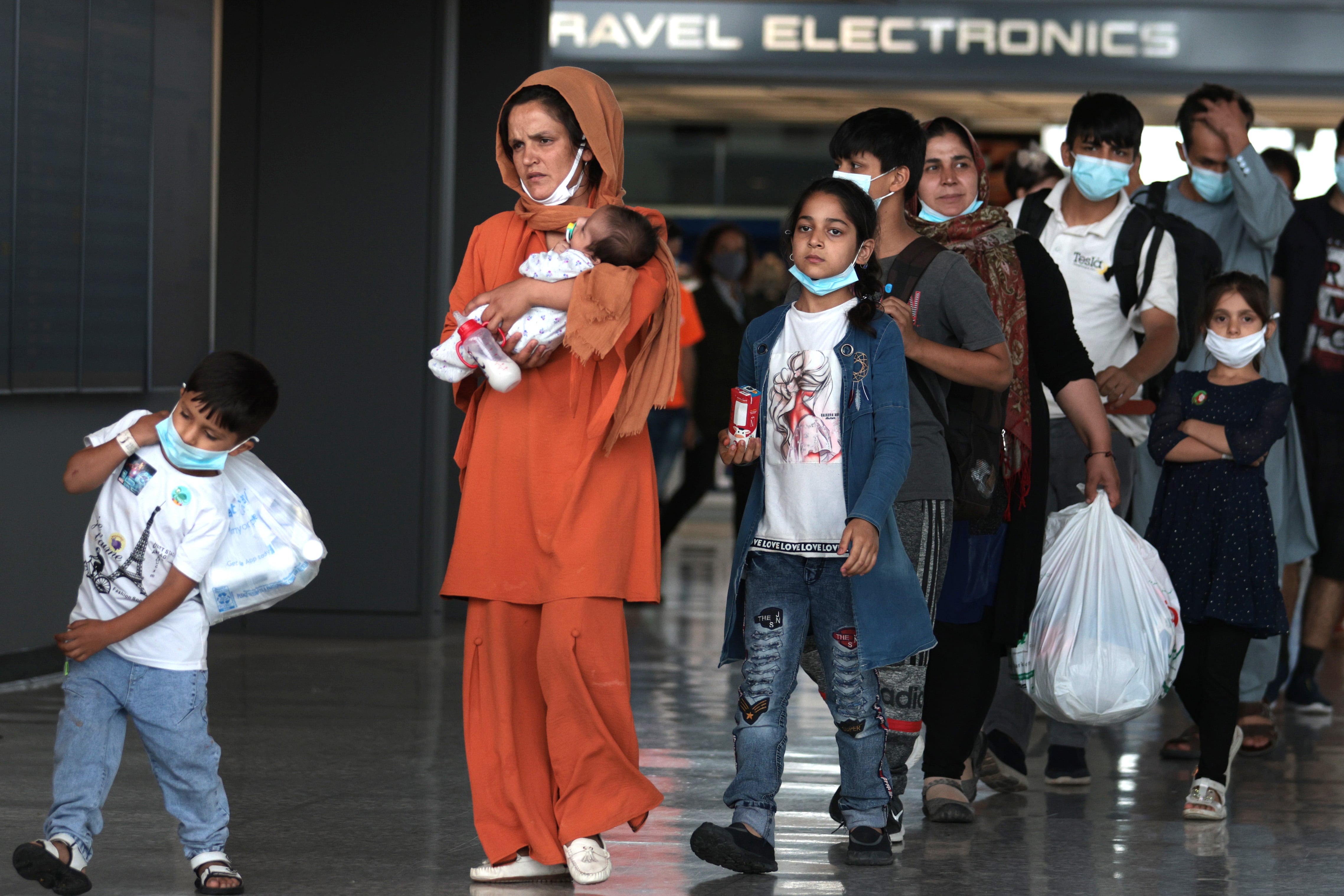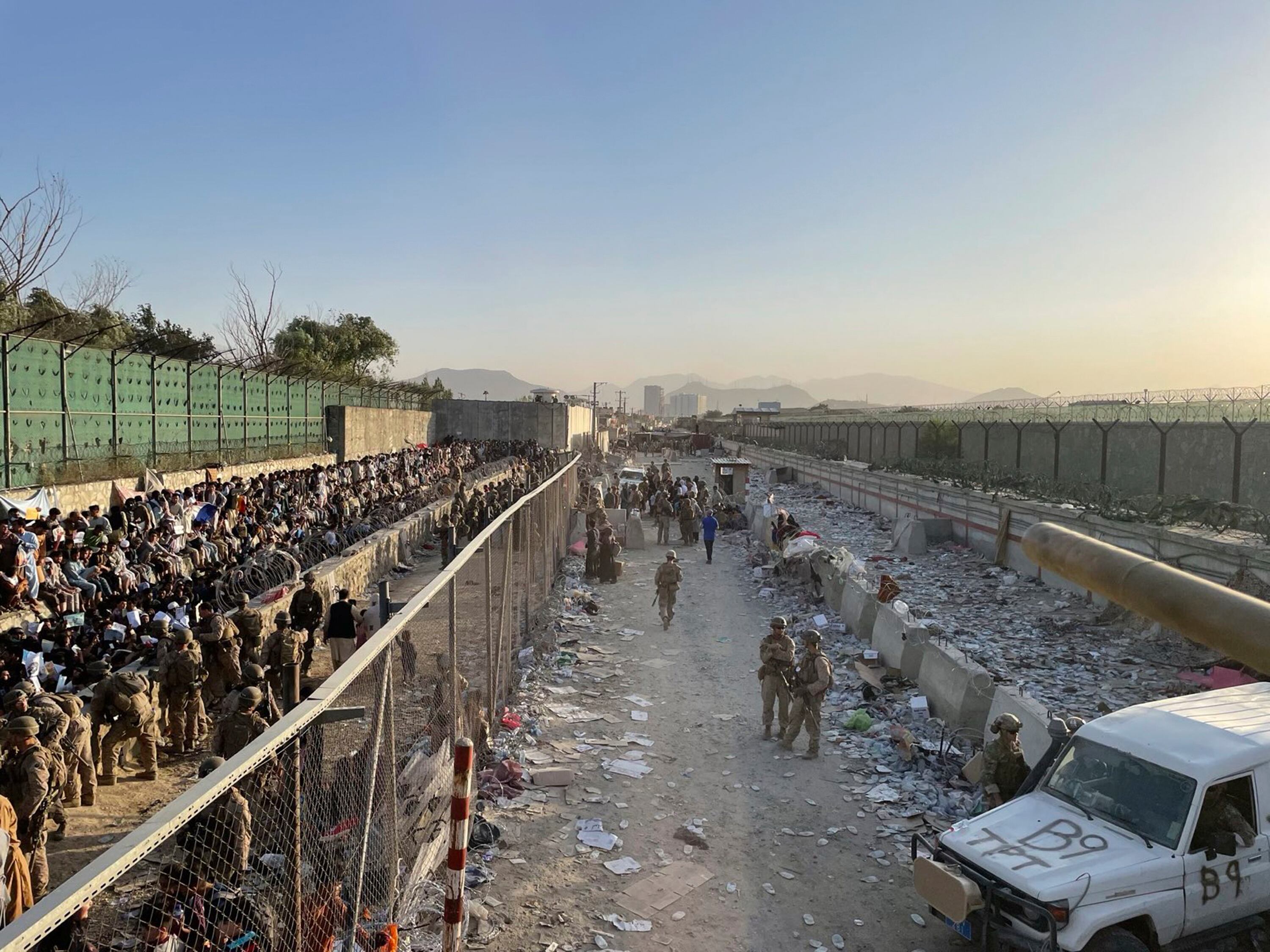Families of U.S. service members who live in Afghanistan are stuck in the country and blocked from relocating to the United States due to an executive order issued by President Donald Trump this week.
An estimated 200 family members of U.S. troops are in Afghanistan and attempting to flee the Taliban through the U.S. Refugees Admissions Program, or USRAP, said Shawn VanDiver, president of AfghanEvac, an organization that helps Afghan allies relocate. Trump suspended that program under the order, “Realigning the United States Refugee Admissions Program,” which he signed his first day in office.
“They feel betrayed, they feel let down,” VanDiver said of the troops trying to get their families into the country.
Under President Joe Biden’s administration, a special exemption was made for families of U.S. service members to enter the country through the refugee program.
The stated reason for the order was that the influx of immigration into the U.S. has strained states’ resources. The suspension of the program goes into effect Jan. 27.
“Entry into the United States of refugees under the USRAP would be detrimental to the interests of the United States,” the order reads.
Afghans who were already in the process of immigrating are now stranded indefinitely. Exceptions will be granted in some cases deemed appropriate by the secretaries of state and homeland security, according to the order. It was unclear Friday what instances might merit exceptions.
In total, 150,000 to 250,000 Afghans are trying to immigrate to the U.S., VanDiver said.
Aside from families of service members, Trump’s executive order impacts some Afghan partner forces who worked closely with the U.S. military, as well as women pilots, prosecutors, judges and human rights advocates, VanDiver told Military Times.
AfghanEvac estimates up to 60,000 of those Afghans are refugees, including families of service members, partner forces and individuals with U.S. associations.
The others had either obtained or were working through the process to get Special Immigrant Visas, or SIVs, which are awarded to Afghans who “were employed in Afghanistan by, or on behalf of, the U.S. government.” Afghans began receiving SIVs – which grant permanent residency status in the U.S. – in 2009, and more than 50,000 SIVs have been awarded.
As of Friday, it appeared Afghans who were able to obtain SIVs would not be affected by the order, VanDiver said. However, many of the nearly 15,000 Afghans who had already been vetted and were ready to travel to the U.S. have had their plans paused indefinitely.
RELATED

AfghanEvac asked the State Department to communicate to the individuals in limbo what the order means for their travel plans.
“Nobody’s contacted them yet, nobody’s told them what to expect,” VanDiver said.
VanDiver was perplexed by Trump’s executive order, given that the president campaigned on addressing the Afghans who were left behind after the U.S. withdrawal from Afghanistan in 2021, he said.
Biden’s withdrawal from Afghanistan received strong criticism after an ISIS-K suicide bomber killed 13 U.S. service members and roughly 170 Afghan civilians on Aug. 26, 2021. The withdrawal was a point of contention during the presidential debates and the lead-up to the election last year. At the Republican National Convention, Trump invited on stage the Gold Star family members of Marines who were killed during the suicide bombing.
“I think that this is a mistake. I think that the president didn’t mean to include Afghans in this,” VanDiver said. “We’re hoping for a technical fix.”
AfghanEvac sent an open letter to Trump’s transition team and lawmakers earlier this month, asking that they create a plan for helping Afghans – including allies who served alongside U.S. forces – relocate and resettle in the United States. The letter now has over 1,000 signatures, and VanDiver is hoping it will usher in a quick solution.
If it doesn’t, failing to help Afghan refugees will send the wrong message to other U.S. allies, VanDiver argued.
“When the U.S. fails to protect those who risked their lives for our missions, it sends a message that loyalty is not reciprocated,” he said in an emailed statement. “This risks discouraging future allies from working with the U.S.”
Riley Ceder is a reporter at Military Times, where he covers breaking news, criminal justice, investigations, and cyber. He previously worked as an investigative practicum student at The Washington Post, where he contributed to the Abused by the Badge investigation.





